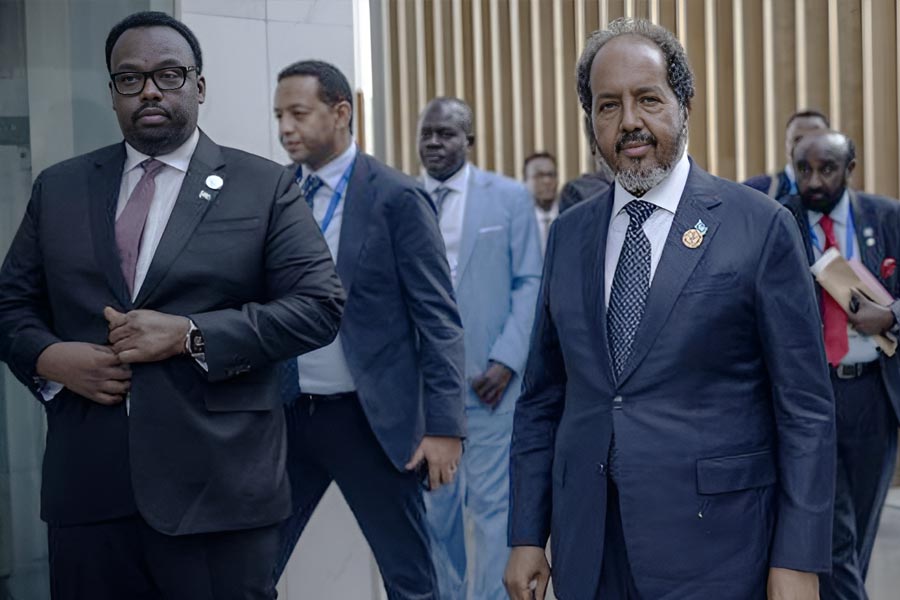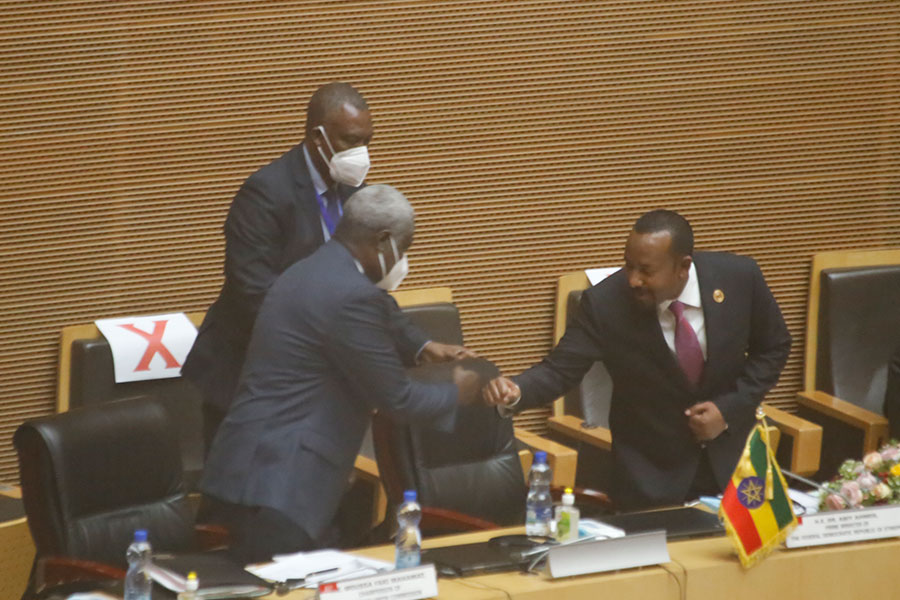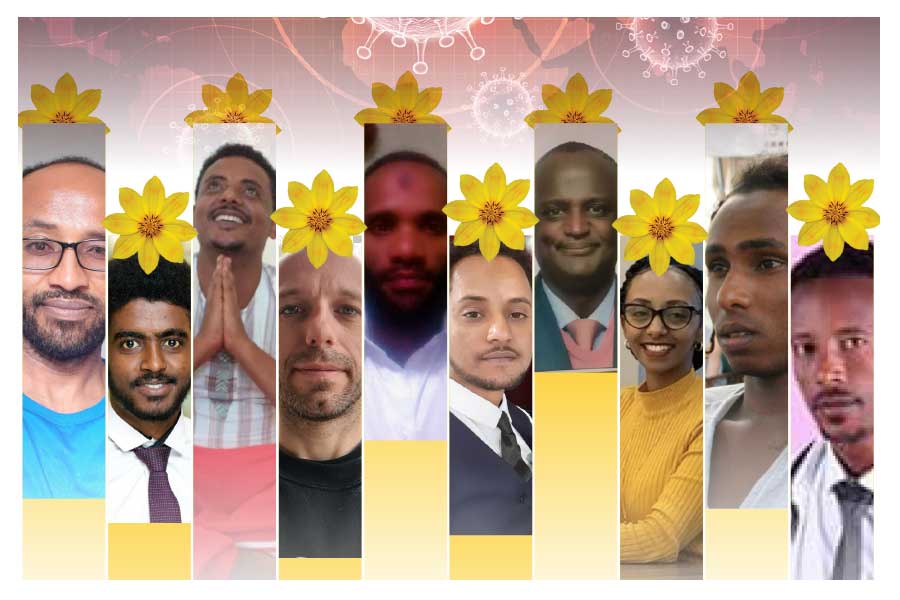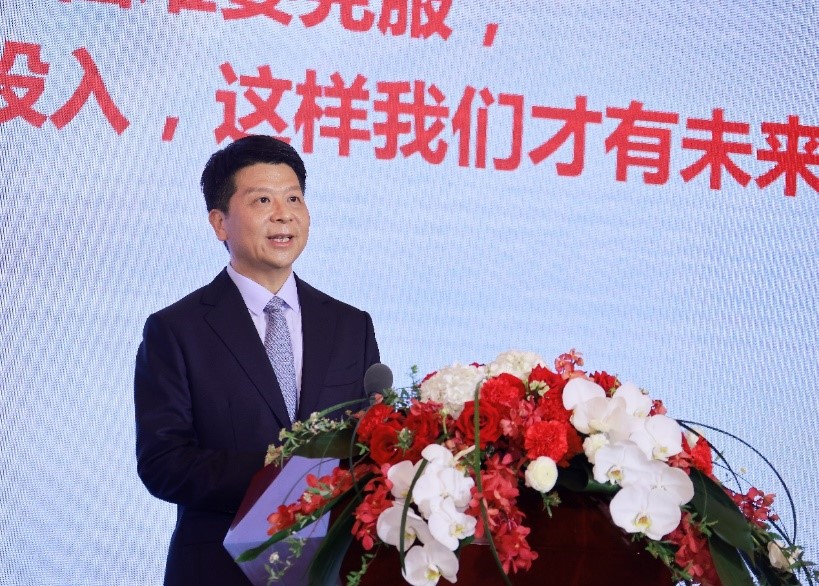
Life Matters | Apr 17,2020
Sep 28 , 2024
By Thomas Hale , Anne-Marie Slaughter
International cooperation tends to be hardest when it is needed most. Last week, world leaders convened in New York for the United Nations "Summit of the Future," which member states called for in 2020, on the UN’s 75th anniversary. The meeting’s agenda was as ambitious as its name suggests, aiming to forge consensus on peace and security, development, new technologies, and the protection of future generations.
Member states agree on one point: the multilateral system established in 1945 needs significant upgrades to confront today’s global crises.
They are keenly aware of the UN’s inability to stop or even slow the wars in Sudan, Central Africa, Gaza, Ukraine, and a dozen other conflict zones. They acknowledge their failure to prepare the world for the next pandemic, even after witnessing the devastation of COVID-19. They recognise the need for rapid, serious action to address a sovereign debt crisis, an intensifying climate crisis, and the emergence of new technologies like artificial intelligence (AI) and gene editing.
Unfortunately, agreement on fixing the system does not extend to how. More than a year of grinding negotiations over the "Pact for the Future," the summit’s outcome document, came concluded dramatically as Russia protested adoption of the final document, only to be overruled. Later, Argentina denounced the Pact as a “totalitarian agenda.” In reality, the document largely repeats previously agreed, abstract language. But amid the lofty words, there are signs of trends that could reshape global politics and help build the foundations for an international system capable of meeting current and future challenges.
After experiencing two world wars and facing the risk of nuclear escalation, the UN’s architects designed a multilateral system that would enable a handful of great powers to steer the world toward peace and advance their own interests. But, this kind of global governance is not fit for today’s world – and especially not for the roughly four billion people under the age of 30. Even in the face of continuing conflict on multiple continents, war is no longer the only item on the global agenda. Pandemics, climate change, poverty, mass migration, and technological catastrophes require effective and inclusive international action.
A much wider range of countries have enough power to influence world affairs. The rise of China has captured the most attention; but, it is far from the only country shaping the global agenda. Barbados has pushed for reform of the international financial system, and the United Arab Emirates (UAE) has sought to reconfigure regional relations. Brazil will host the G20 this year and a make-or-break UN Climate Change Conference (COP30) next year.
Surprisingly, the "Pact for the Future" recognises this increasing multipolarity with concrete, albeit incremental, progress on one of the UN’s thorniest problems: reforming the Security Council.
After decades of false starts, member states are moving the process forward by agreeing to greater representation on the Council for “developing countries and small- and medium-sized states.” The pact also commits member states to discuss limits on the “scope and use” of the veto wielded by the Security Council’s five permanent members, revolves to treat the representation of African countries as a “special case,” and endorses an active role for the General Assembly when the Security Council fails to act.
Another trend reflected in the negotiations is the important role that companies, NGOs, cities, and other actors play in addressing global challenges, forming networks that complement national governments. From climate change to AI and misinformation, non-state entities are increasingly shaping the outcomes that matter most to people. The Pact for the Future pledges to “strengthen partnerships” across the “whole of society,” including local and regional governments, the private sector, academic and scientific communities, religious groups, and indigenous peoples. The Global Digital Compact, agreed as an annexe to the pact, identifies the private sector, researchers, and civil society as “essential” for achieving its goals and commits to multi-stakeholder cooperation.
Lastly, the summit embraced a shift toward longer-term governance. Climate change, pension schemes, infrastructure investment, and other “long problems” have causes and consequences that unfold over many generations. In the Declaration on Future Generations, a second annexe to the pact, countries affirm their commitment to “safeguard the needs and interests of future generations,” echoing the first line of the 1945 UN Charter, in which their predecessors pledged to “save succeeding generations from the scourge of war.”
These grand statements are grounded in specific actions taken by national governments intent on extending the horizon of decision-making. In 2015, Wales was the first government to establish a Commissioner for Future Generations. This month, the European Commission appointed a Commissioner for Intergenerational Fairness. South Korea has also recently moved in this direction, with the Constitutional Court ordering the government to set more ambitious climate targets to protect future generations. To the extent that the declaration catalyzes more change, it could eventually be seen as a transformative force, much like the 1948 Universal Declaration on Human Rights.
In his 2021 "Our Common Agenda" report, UN Secretary-General Antonio Guterres foresaw a “future of perpetual crises, or a breakthrough to a better, more sustainable, peaceful future for our people and planet.” The Pact for the Future is not the breakthrough many had hoped for, but it begins to outline the contours of a new system that could rectify the shortcomings of the old one.
PUBLISHED ON
Sep 28,2024 [ VOL
25 , NO
1274]

Life Matters | Apr 17,2020

Viewpoints | Jul 15,2023

Fortune News | Feb 17,2024

View From Arada | Sep 03,2022

Commentaries | Oct 26,2024

Commentaries | May 21,2022

Fortune News | Feb 05,2022

Commentaries | Feb 05,2022

Fortune News | Sep 11,2020

Sponsored Contents | Apr 05,2022

My Opinion | 132041 Views | Aug 14,2021

My Opinion | 128437 Views | Aug 21,2021

My Opinion | 126364 Views | Sep 10,2021

My Opinion | 123983 Views | Aug 07,2021





Dec 22 , 2024 . By TIZITA SHEWAFERAW
Charged with transforming colossal state-owned enterprises into modern and competitiv...

Aug 18 , 2024 . By AKSAH ITALO
Although predictable Yonas Zerihun's job in the ride-hailing service is not immune to...

Jul 28 , 2024 . By TIZITA SHEWAFERAW
Unhabitual, perhaps too many, Samuel Gebreyohannes, 38, used to occasionally enjoy a couple of beers at breakfast. However, he recently swit...

Jul 13 , 2024 . By AKSAH ITALO
Investors who rely on tractors, trucks, and field vehicles for commuting, transporting commodities, and f...

Jul 12 , 2025
Political leaders and their policy advisors often promise great leaps forward, yet th...

Jul 5 , 2025
Six years ago, Ethiopia was the darling of international liberal commentators. A year...

Jun 28 , 2025
Meseret Damtie, the assertive auditor general, has never been shy about naming names...

Jun 21 , 2025
A well-worn adage says, “Budget is not destiny, but it is direction.” Examining t...

Jul 13 , 2025 . By YITBAREK GETACHEW
The Addis Abeba City Revenue Bureau has introduced a new directive set to reshape how...

Jul 13 , 2025 . By BEZAWIT HULUAGER
Addis Abeba has approved a record 350 billion Br budget for the 2025/26 fiscal year,...

Jul 13 , 2025 . By RUTH BERHANU
The Addis Abeba Revenue Bureau has scrapped a value-added tax (VAT) on unprocessed ve...

Jul 13 , 2025 . By NAHOM AYELE
Federal lawmakers have finally brought closure to a protracted and contentious tax de...